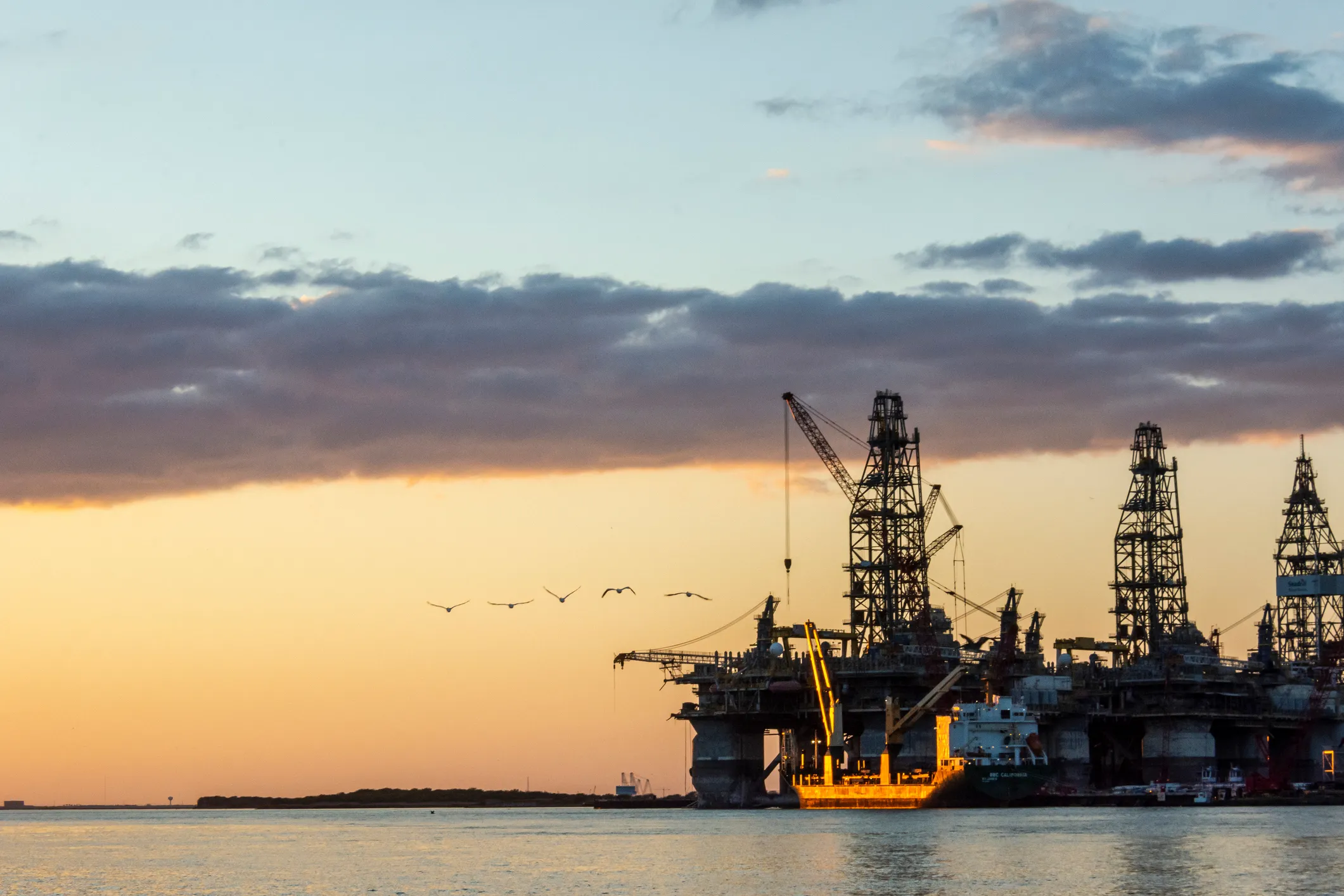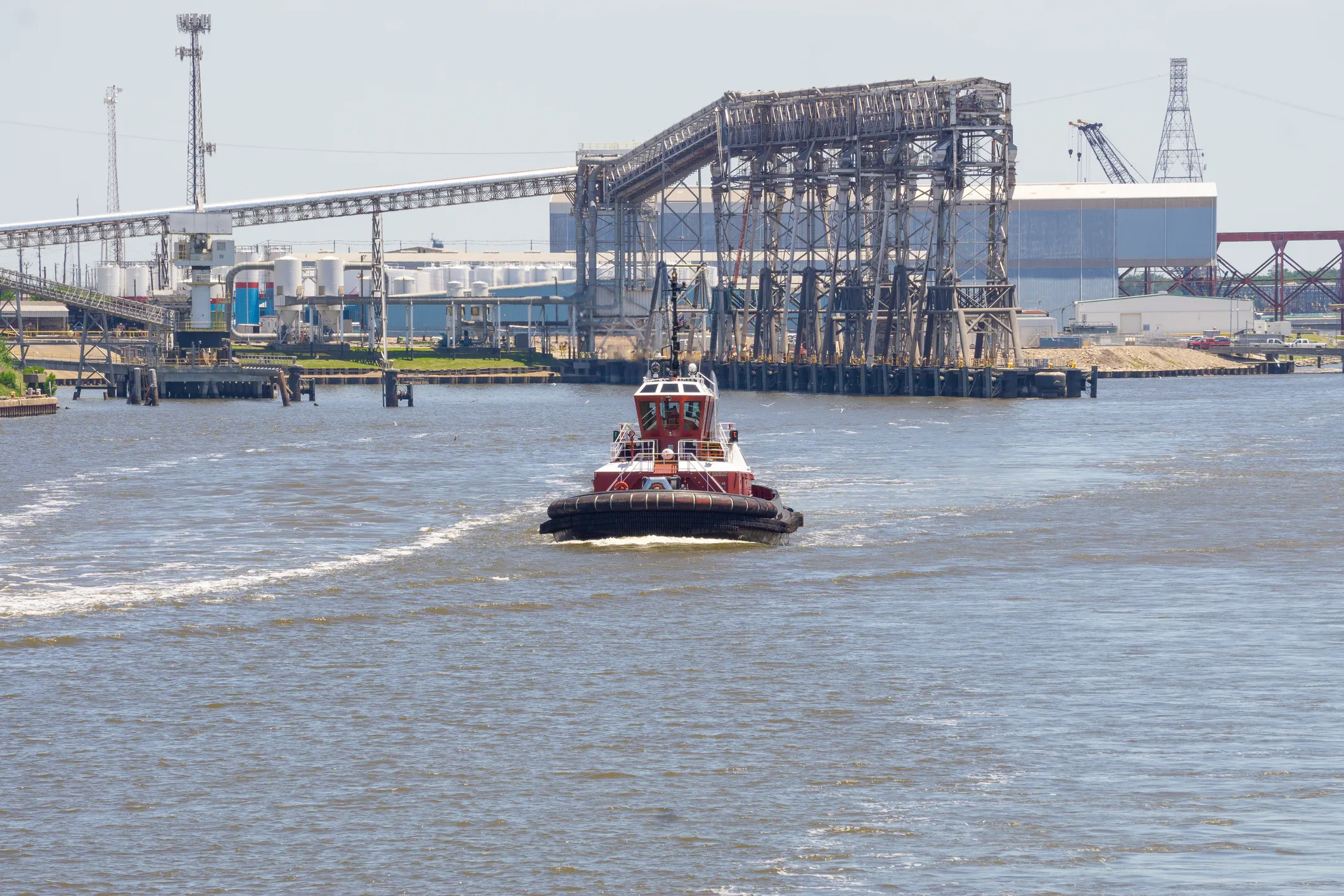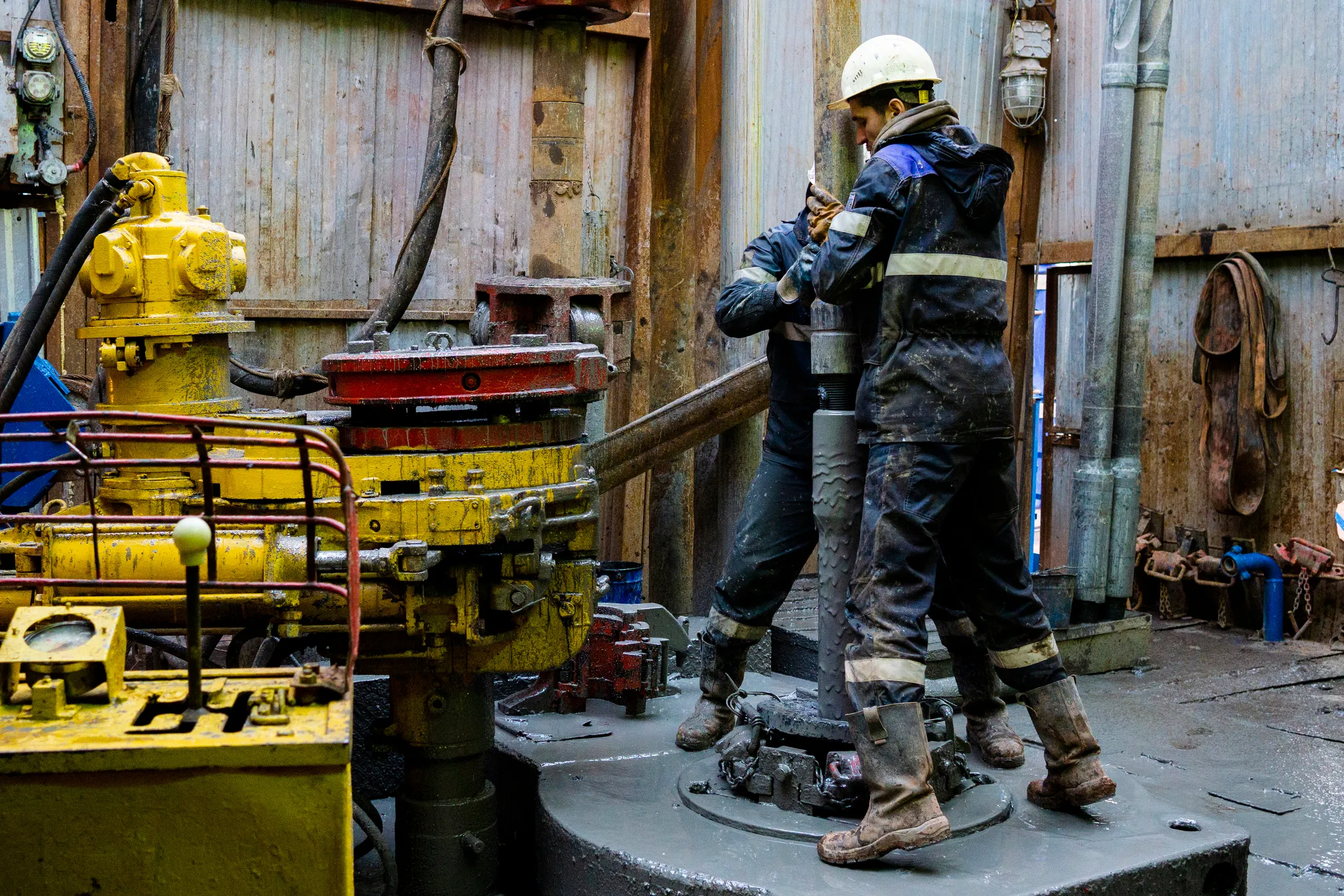Houston Offshore Accident Attorney
Workers in marine terminals and port operations have higher fatality, injury and illness rates than other workers in the U.S. However, the fact that the offshore and maritime industry can be dangerous does not mean that a person or company who caused an injury should be excused from liability. A company should never be rewarded for putting profits over safety.
If you have been injured in a maritime or offshore workplace accident, or you lost a loved one in that manner, contact Havens & Associates for a free consultation with a Houston maritime attorney.
Call (713) 955-2215, and we can explain your rights to demand compensation in a workplace injury or wrongful death lawsuit.

Have you been in one of these types of offshore or maritime accidents?
We take all types of offshore and maritime accidents, including:
- Tugboat accidents
- Barge accidents
- Offshore oil rig accidents
- Fires and explosions
- Slips, trips, and falls
- Electrical contact and electrocution
- Heavy machinery and equipment failures
- Basket transfer injuries
- Crane and hoisting injuries
- Helicopter crashes
We represent all types of injured offshore and maritime workers
Our Houston offshore accident attorneys represent workers like you, not big corporations. The following are just some of the workers we represent:
- Seamen, including masters, pilots, mates, coxswain, barge, tugboat, and crew boat workers
- Offshore oil rig and gas workers, including pipefitters, roustabouts, drillers, operators, and derrick hands
- Workers at ports or in harbors, like longshoremen and harbormasters

What does it mean to be seaworthy?
Every ship must pass tests to ensure it can travel safely on the open water before being deemed “seaworthy.” The vessel owner or operator owes a duty to the seamen to provide a seaworthy vessel, so if unseaworthiness causes injury or death, the owner can be liable.
What makes a vessel seaworthy?
The common law definition of seaworthiness for a ship or other vessel offers reasonable safety for passengers and crew and is fit for typical perils found at sea. The law considered several factors in determining whether a vessel is seaworthy:
- The overall condition of the vessel, including both hull and equipment
- How competent the crew and officers are, and how skilled they are at operating the vessel in question
- Proper safety equipment and protection aboard the vessel
Lack of seaworthiness may also include whether safety rules and regulations are followed while operating the vessel.
Some physical characteristics to determine whether a vessel is seaworthy include:
- Stability
- Ability to handle choppy or rough waters
- Buoyancy when carrying heavy loads
- The ability to effectively shed water
- The reliability of its propulsion system
- No avoidable safety hazards
- Appropriate safety equipment for emergencies
- Agility and speed of the vessel with regard to its size and age
- Fire suppression capabilities
It’s important to note that the Jones Act has a specific definition of seaworthiness. A Houston maritime and admiralty injury attorney can evaluate the condition of the vessel on which you were injured to determine its seaworthiness under common law and per the Jones Act.
Why do offshore accidents happen?
There are many ways that offshore workers on rigs and platforms may be injured. Transportation injuries are a cause of accidents that happen to workers en route to or from the platform. Other reasons offshore accidents can happen include:
Workplace hazards
Slick walking surfaces or a rickety rig increase the chances of falling, slipping, and landing hard enough to injure yourself. The apparatus itself may be unstable, making it fundamentally unsafe.
Fires are likely, or explosions, due to the nature of the material rig workers handle. Even some fire suppression chemicals pose a danger to offshore workers, like Aqueous Film-Forming Foam (AFFF), which has been linked to multiple forms of cancer and other progressive diseases.
Poor employee training
Improperly trained employees may not know how to adjust if equipment is faulty or may not know how to safely use tools or equipment on the apparatus. They could hurt someone else through ignorance.
Lack of safety gear
Employers must make reasonable efforts to provide safety gear and institute safety protocols to reduce employee injury. Workers may suffer serious exposure injury without the right personal protective equipment, gloves, or goggles. Other safety gear can include harnesses and other protections against falls.
Lack of safety gear
A rig or vessel in poor condition or otherwise non-seaworthy poses a danger to everyone aboard. The chances of capsizing or an overboard accident are high if the vessel cannot handle normal perils at sea or choppy, rough waters.
What kinds of compensation can I receive for an offshore injury?
Economic damages
Every case is unique, so the specifics of your offshore or maritime injury settlement may vary. In general, injured maritime and offshore workers may demand compensation for the following:
- All medical care related to the accident, like a hospital stay, surgery, skin grafts, and special care
- Any rehabilitative services, like physical or occupational therapy
- Prescription medications
- Lost wages from time missed at work to heal from the injuries
- Loss of earning potential if they are unable to continue in the line of work they were in before the accident and must take a lower-paying job
- Lost earnings if they are disabled to the point that they cannot hold gainful employment
- Accommodations in a skilled nursing facility
Non-economic damages
Your Houston admiralty lawyer may also demand that you receive compensation for intangible (non-economic) losses, like:
- Pain and suffering from your injuries
- Emotional trauma or mental anguish from the accident or due to your changed abilities
- Scarring or disfigurement
- Loss of consortium with your spouse (intimacy)
- Loss of companionship (damaged relationships with loved ones)
- Loss of guidance (unable to be the parent you once were to your children)
Although it’s harder to quantify your non-economic losses, they still have value. You’re entitled to be compensated for the diminished quality of life you now have due to the accident.

When do maritime/admiralty laws apply?
Maritime, or admiralty law, governs activities and legal issues for shipping and navigation industries. They apply to all navigable waters used for travel, commerce, or trade between states or foreign countries. Navigable waters include:
- High seas
- Inlets
- Bays
- Harbors
- Rivers
Federal maritime laws apply if these bodies of water run between states. If the body of water is contained entirely within one state, such as a lake, then federal maritime jurisdiction does not apply. If you have been injured on a body of water entirely within Texas borders, you may still be able to recover damages. Ask your Houston maritime injury lawyer which laws apply in your case.
What are some common maritime and offshore injuries?
Maritime and offshore work-related injuries can be severe and often disabling. Some of the more common injuries our Houston offshore accident law firm clients suffer include:
- Slip-and-fall injuries due to uneven, slippery, or cluttered surfaces
- Falling overboard when loading cargo, while out to sea, or when hauling fishing gear or a catch over the side of the ship
- Burn injuries from fires, contact with hot fluid, chemical burns, or electrical burns
- Poisoning or asphyxia from working around toxic substances in enclosed spaces for extended periods of time
- Struck-by or crushing injuries in pier or dock accidents, which may cause involuntary amputation or internal organ damage
- Repetitive motion injury to the leg, hip, back, neck, or extremities
- Broken limbs or dislocations
The Jones Act
The Jones Act is a federal law establishing a U.S. Merchant Marine. It also extends the Federal Employer’s Liability Act (FELA) liability protection to seamen injured in the line of duty, permitting them to file a personal injury lawsuit against their employer.
The Longshore and Harbor Workers’ Compensation Act
The LHWCA provides workers’ compensation for persons other than seamen engaged in maritime employment. This compensation is generally provided without regard to the injured worker’s fault.
Outer Continental Shelf Lands Act
The Outer Continental Shelf Lands Act extends the LHWCA’s compensation benefits to offshore workers engaged in oil and gas operations on the Outer Continental Shelf.
What’s the process for filing a maritime injury claim?
- Filing an offshore injury claim depends on which laws govern your case. Start the process by talking to an experienced maritime accident attorney. They know the laws and requirements for filing a claim under each one.
- Offshore accident claims generally have a lower burden of proof than a standard personal injury case, but your attorney must still prove your claim. They’ll gather evidence against the defendant(s), like photos, videos, witness statements, or the safety records of the vessel or job site.
- Many claims can be settled out of court, with both parties negotiating a fair settlement. However, if the other party does not compromise, the case moves to trial. If it’s a maritime law case, it’s held in federal court.
Can I bring a wrongful death suit if my loved one died in an offshore accident?
Yes, under the Death on the High Seas Act (DOHSA), specific beneficiaries of a deceased seaman or offshore worker may file a wrongful death suit against the employer if the deceased was injured in the course of their job working at least three miles offshore.
The spouse, children, and parents may be entitled to recover damages like loss of companionship and support, loss of financial contribution to the family, funeral and burial expenses, and the emotional trauma and pain and suffering of their loss.
Our Houston offshore death attorneys can fight to ensure that your family receives the maximum compensation for your loss.
Why should I hire Havens & Associates?
When you work with the skilled legal team at Havens & Associates, you benefit from our decades of combined legal experience, focusing on maritime and admiralty laws. We’re an award-winning firm with honors from:
- Multi-Million Dollar Advocates Forum®
- Million Dollar Advocates Forum®
- The Top Trial Lawyers in America®
Here are just some of the benefits of working with our Houston maritime accident attorneys:
- Depth of experience in offshore and maritime injury cases
- Genuine care and personalized legal advice
- Insight into the defense’s strategy
- A long history of successful verdicts
We believe that results speak for themselves. We have a strong history of six-and-seven-figure settlements and jury awards, including a recent victory securing $600,000 for a client injured in an oil rig accident.
Schedule your free consultation with a Houston maritime attorney
If you’re a maritime or offshore worker who was injured on the job, you can’t afford to settle for less. You need skilled legal advice from a Houston offshore accident attorney.
You may be tempted to accept a fast settlement from your employer or another responsible party, but it’s likely not the total amount your case is worth. It may not even be enough to cover long-term treatment or care for complications from your injury. Call (713) 955-2215 and book your free consultation to fight for what you deserve.